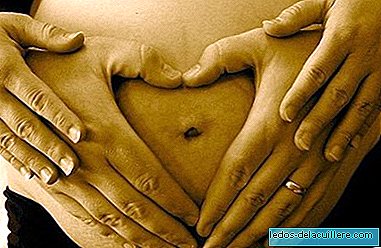
Heart disease or malfunction of the heart or the rest of the cardiovascular system can put pregnancy at risk. Congenital heart disease occurs when the disease is due to a problem of fetal development and maturation, that is, when alterations of the heart and large vessels exist from birth.
As we mentioned when talking about heart disease in the first part of this series, the risks associated with pregnancy cannot be generalized in the case of women with congenital heart disease, since they vary depending on the type of heart disease.
However, in a high number of cases pregnancies proceed normally, and it will be the specialists (cardiologist and gynecologist) who determine the degree of risk posed by a pregnancy.
We will try to review the fundamental concepts of congenital heart disease and its risks to pregnant women and the fetus.
Congenital heart disease during pregnancy
Most women with congenital heart defects that have not had symptoms before pregnancy do not have a higher risk of complication during pregnancy.
Mild heart disease (for example, interatrial communication or atrioventricular canal) usually involves a very low risk for pregnancies, while cyanotic heart disease carries a higher risk.
Women who have certain disorders that affect the right side of the heart and lungs (Eisenmenger syndrome, primary pulmonary hypertension) are at risk of collapsing and dying during or shortly after birth. The cause of death is unclear, but the risk is important enough to advise against pregnancy.
If a woman with any of these disorders becomes pregnant, the delivery should be done in the best possible conditions and with the complete resuscitation team prepared. Abortion after 20 weeks of pregnancy is also dangerous for these women.
In any case, since each heart is different, the cardiologist should be consulted about pregnancy plans to inform us of the risks and, if possible, if there is any treatment.

Risks of congenital heart disease
The following conditions that could happen during the pregnancy of a woman with congenital heart disease involve a serious risk for women or fetuses, including death:
- Myocardial insufficiency (weakness of the heart muscle)
- Cardiac dysrhythmias
- Syncope (sudden loss of consciousness)
- Endocarditis (inflammation of the heart valves)
- Thrombosis and embolisms
- Brain abscess
- High risk of cyanosis (bluish discoloration of the skin, mucous membranes and nail beds due to lack of oxygen)
- Tear of the main artery
- Tearing of the dilated parts of the main cardiac or cerebral arteries
- Sudden cardiac death
For the fetus, the usual dangers They are premature birth, abnormally low birth weight and even fetal death can occur.
Along with all the physical problems that come with heart disease during pregnancy, we must bear in mind that women with congenital heart disease show more anxiety than other pregnant women. The natural concern for the baby's health is added to his own heart condition.
In short, although the vast majority of women with congenital heart disease can have children regardless of the severity of their condition, heart disease can complicate pregnancy. There are many types of diseases related to the heart and blood circulation, which we will discuss in future articles.












